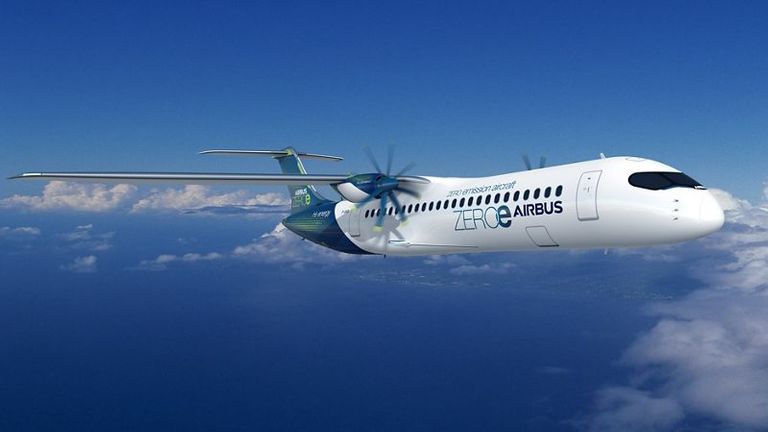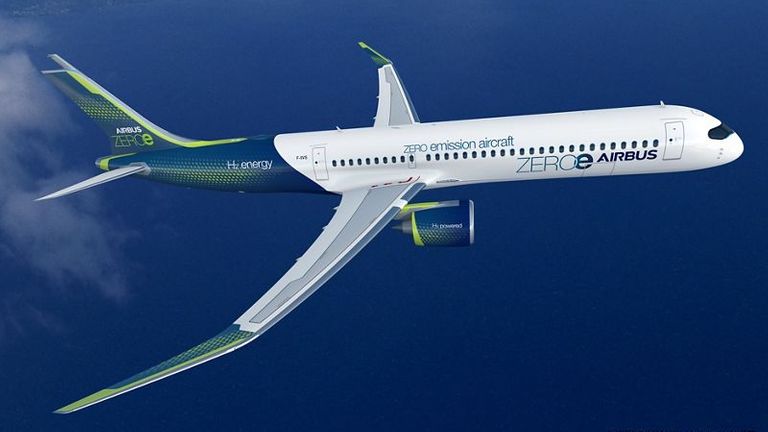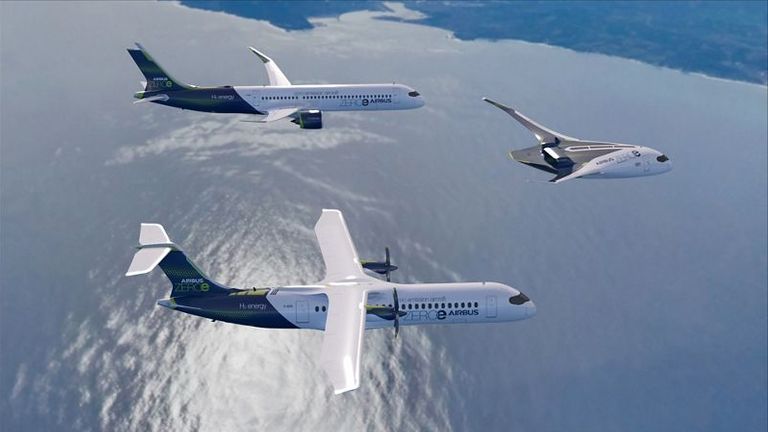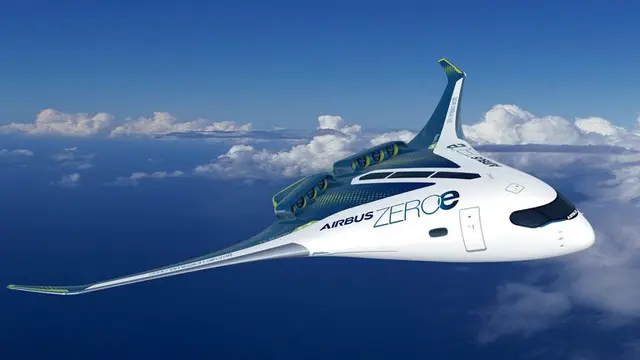Airbus has unveiled three concepts for a zero-emission commercial aircraft powered by hydrogen rather than jet fuel, which it says could be carrying passengers by 2035.
The three concepts are each based on a different idea for how to achieve zero-emission flights and use different aerodynamic configurations for what the company said was its ambition of "decarbonising the entire aviation industry".
The crucial power source for all of these planes, codenamed ZEROe (for zero emissions), is hydrogen as a clean aviation fuel.

Image:The turbofan configuration could fly 2,000+ miles
The aerospace company said its concepts are yet to be evaluated and validated to see whether they could become real planes in the future.
One of these is a turbofan design capable of carrying 120-200 passengers with a range of 2,000+ miles by using modified gas-turbine engines powered by liquid hydrogen stores in tanks behind the rear pressure bulkhead.

Image:The turboprop configuration could make shorter journeys
Another design using a turboprop engine (modified from gas-turbine engines) could carry up to 100 passengers more than 1,000 nautical miles - making it a "perfect option for short-haul trips" according to Airbus.
The third futuristic design uses a blended-wing body and could carry up to 200 passengers to distances similar to the turbofan fan concept.
In this design the wings merge with the main body of the plane, giving it a wide fuselage which allows for greater hydrogen storage capabilities and a new kind of cabin layout.

Image:The blended-wing body configuration could also fly 2,000 miles
"The transition to hydrogen, as the primary power source for these concept planes, will require decisive action from the entire aviation ecosystem," said Airbus CEO Guillaume Faury.
"Together with the support from government and industrial partners we can rise up to this challenge to scale-up renewable energy and hydrogen for the sustainable future of the aviation industry."
But airports will require "significant hydrogen transport and refueling infrastructure to meet the needs of day-to-day operations," the company warns - something which will require investment.
"Support from governments will be key to meet these ambitious objectives," the company added.
 简体中文
简体中文





